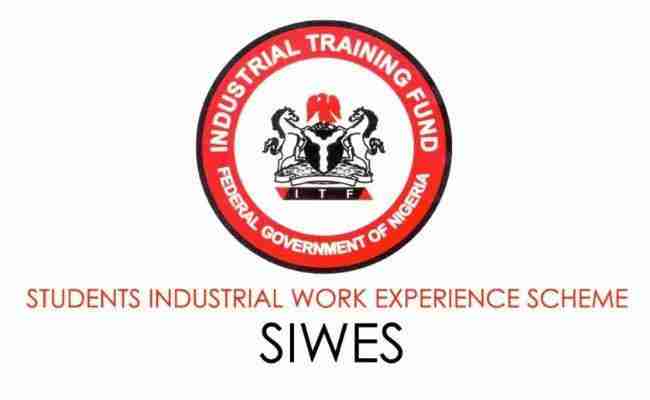What Is the History of SIWES in Nigeria?
If you want to learn the history of SIWES in Nigeria, you have come to the right page.
The Student Industrial Work Experience Scheme (SIWES) was established by the Industrial Training Funds in 1993 to solve the inadequate availability of skills for employment of graduates by Nigerian Industries. SIWES was founded as a skill training program to prepare students of the higher institution for life in the corporate world after graduation.
This training program serves as a transition tool from the lecture room to the workforce, and it also helps in the application of knowledge. It also gives students the experience needed in the management and handling of machinery and equipment not available in their institutions.
The Background
Taking you back to the history of SIWES, Before the establishment of this training program, there was a deep concern for higher institution graduates that lacked a practical background for employment. The ITF made a decision that helps all Nigerian students with the establishment of SIWES. It was approved by the Federal Government in 1974.
The program was funded by the ITF, but the body withdrew from the program in 1978, when the government handed over SIWES management to the National Universities Commission (NUC) and the National Board for Technical Education (NBTE) in 1979. The management was later returned to ITF in November 1984, and in 1985, the Federal Government became its sole funder and the ITF its sole manager.
SIWES is a scheme that lasts sixteen weeks (4 months). It is done after the first year in polytechnics (ND1), and after the second or third year in universities, depending on your specific institution.
What Are the General Objectives of SIWES?
SIWES is designed for skill acquisition in a bid prepare and expose students of higher institutions to real-life work situations which they would be exposed to upon graduation. Therefore, SIWES is a crucial factor required to inject and help keep alive industrialization and economic development in the nation through the introduction and practical teaching of scientific and technological skills to students.
Objectives of the Students Industrial Work Experience Scheme include the following:
- The program provides an avenue for students to acquire industrial skills for experience during their course of study.
- It exposes students to work methods and techniques that may not be available during their course of study.
- Bridging the gap between theory and practice by providing a platform to apply knowledge learnt in school to real work situations.
- Enabling the easier and smoother transition from school by equipping students with better contact for future work placement.
- Introduce students to a real work atmosphere so that they know what they would most likely meet once they graduate.
Related:
- How to Register and Check Your Company Name with CAC Public Search
- How to Obtain Business Loan from Development Bank of Nigeria (DBN)
- The Best 10 School of Nursing in Nigeria
- Top 10 Fast-Moving Businesses in Nigeria
Organisations Involved in the Management of SIWES Program and Their Roles
The Federal Government, the Industrial Training Fund (ITF), the Supervising Agency, National Universities Commission, NUC, employers of labour, and Institutions all have specific roles to play in the management of SIWES. These roles are outlined below:
The Federal Government
- Provision of adequate funds to the ITF through the Federal Ministry of Industry for the scheme;
- Making it mandatory for all ministries, companies, and parastatals to offer places to students in accordance with the provisions of Decree No. 47 of 1971 as amended in 1990;
- Formulation of policies guiding the running of the scheme nationally.
The Industrial Training Fund (ITF).
- Formulating policies and guidelines on SIWES for distribution to all the SIWES participating bodies;
- Providing logistic material needed to administer the scheme;
- Organizing orientation programs for students prior to attachment;
- Providing information on companies for attachment and assisting in the industrial placement of students;
- Supervising students on industrial attachment;
- Accepting and processing master and placement lists from institutions and supervising agencies;
- Vetting and processing students’ logbooks and ITF Form 8.
The Supervisory Agencies (NUC, NABTEB, etc)
- Ensuring the establishment and accreditation of SIWES unit/Directorate in institutions under their jurisdiction;
- Vetting and approving Master and Placement lists of students from participating institution and forward same to ITF;
- Funding SIWES Directorate adequately in participating institutions;
- Directing for the appointment of full-time SIWES Coordinator/Director;
- Reviewing programs qualified from SIWES regularly;
- Participating in the Biennial SIWES conferences and seminars in conjunction with the ITF.
Wrapping up with this history of SIWES, it was founded by the ITF in 1993 for solving the inadequate availability of skills for employment of graduates in Nigerian industries. The scheme was created as a skill training program to prepare students of higher institutions for life in the corporate world after graduation.
You’ve learnt a lot from this article, do not forget to share with your friends and family on Facebook, Twitter and WhatsApp. You can also follow us on Facebook and Twitter.
